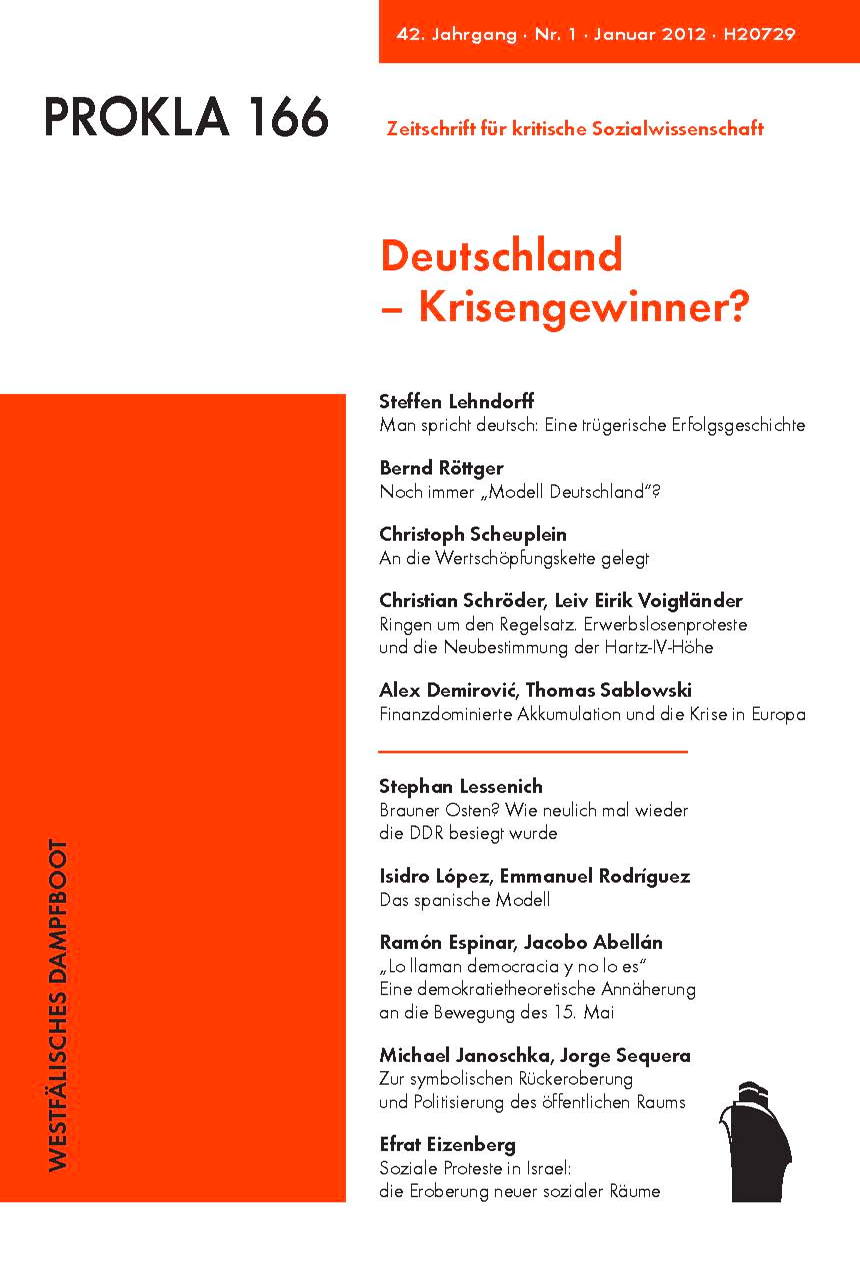Zur symbolischen Rückeroberung und Politisierung des öffentlichen Raums
Eine Analyse der Raumpolitiken des movimiento 15-M
DOI:
https://doi.org/10.32387/prokla.v42i166.23Keywords:
Spanien, 15-M, Protest, BewegungsforschungAbstract
The radical conquest of public space and its transformation into political space
have introduced major alterations of the Spanish public sphere after the outbreak of the 15-M
movement. Such modifications refer also to a topic of symbolical interest, which is the conception
and configuration of urban space – a space that in the course of neoliberal urban
production has been characterized as a residual category and a place of controlled and profitoriented
activities. By analysing key practices of the protest movement, the article brings together
debates from critical urban geography and political theory. In a first step, it develops a
conceptual perspective towards the multiple logics of neoliberal urbanism and the transformation
of public space. Subsequently, counter-hegemonic spatial politics and urban demands
will be discussed through the conceptualization of protest as acts of citizenship, proclaiming
the construction of the public sphere and public space via strategic disobedience and the
transgression of rules and laws. Protest camps, public political assemblies and recent squatting
can be analysed as newly created spaces of citizenship that reconstruct the meaning of public
space and of a political and politicised public sphere, claiming different ways of policy making.






